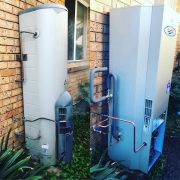Water is one of the most important elements for your outdoor area and greenhouse crop production. Several factors determine the quality of the water. But why? It’s because the presence of hard metals such as calcium, magnesium, toxic ions, and heavy metals can clog the irrigation systems. This is why it becomes crucial to determine its quality so that it does not cause any harm to your irrigation lawn.
Coming back to the factors!
These factors include pH, alkalinity, and soluble salts. Not considering these factors can result in the poor growth of the crop and can even lead to the death of the plants. For example, the high soluble salts in the water can cause injury in the roots, burning of the lead edges, and nutrition uptake.
So, if you want your lawn to have sufficient plant growth with a lesser risk of discharging the pollutants to the groundwater, you should not ignore the quality of water. For this reason, here we have mentioned guidelines that will provide your lawn with the nutrient it needs.
pH: The pH of the water ranging from 6 to 7 is best for turfgrass. Any value below 7 is considered acidic in nature, while the pH value of 7 has a neutral value. Thus, irrigation water that lies between acidic and neutral range does not interfere with the turfgrass performance.
Bicarbonates and carbonates: Bicarbonates and carbonates are the most common elements that are found in irrigation water. The high levels of these elements react with calcium and magnesium and result in the formation of insoluble calcium carbonate and magnesium carbonate, limiting their absorption by the plants. Remember, calcium and magnesium are important elements that are required for plant growth.
Sodium: Sodium is present in almost all irrigation water. But, if it exists in a high-concentration, it can be problematic for the roots and foliage. The presence of high levels of sodium gets accumulated in the lead tissue and leads to foliar burning. Especially, the grasses that are grown on the golf course are more susceptible to sodium toxicity.
Sulfate: Sulfur is a very common ingredient that is found in fertilizers. It promotes plant growth, especially if it is less than 50 ppm. The supplemental sulfate covers all the deficiency problems in plant growth.
Electrical conductivity (EC) and total dissolved solids (TDS): Electrical conductivity is the measurement degree to which water conducts electricity, and TDS is the total dissolved and soluble salts. The irrigation company experts suggest that water having a TDS concentration higher than 500 mg/L needs special attention on the irrigation duration and frequency, drainage, and turfgrass species selection.
Boron: Boron promotes plant growth if it is at a low concentration. However, having very little concentration from 1 to 2 mg/L can be very toxic to ornamental plants. Thus, it is important to use the concentrations that are safe to use in irrigation water. Boron concentrations greater than the 2 mg/L are best for the turfgrasses.
What You Need To Ensure Irrigation Water Quality
Regularly test your irrigation water for salts, minerals, heavy metals, pH levels, and microbial pathogens at the beginning of the growing season and periodically throughout the year. Depending on the results, you may need to implement treatment measures.
Install filters to remove sediments, debris, and larger particles from the water. Use chlorine or hydrogen peroxide to disinfect the water and control microbial growth. Employing reverse osmosis systems helps remove salts, minerals, and contaminants. It’s also crucial to regulate the pH of the water to meet the specific requirements of your crops by using lime or acid injection systems.
Additionally, consider using drip irrigation systems, which deliver water directly to the base of plants, minimizing contact with leaves and reducing the risk of disease transmission. Implement water quality monitoring systems and automation technology for continuous assessment and make real-time water treatment and delivery adjustments as needed.
You can buy these supplies and equipment from reputable water solution providers, such as Nutrien Water Store. They usually have a dedicated team to provide irrigation, pumping, and water management solutions.
Moreover, maintain detailed records of water quality test results, treatment activities, and irrigation practices. This documentation can be valuable for troubleshooting issues, demonstrating compliance with regulations, and improving overall irrigation management.
Now you have an idea about the factors that you need to consider before irrigating your lawn. Also, do not forget to test the soil, types of grass, and plants before beginning the process of irrigating your yard. Irrigating your yard appropriately will provide you with the most beautiful and healthy landscape.




















